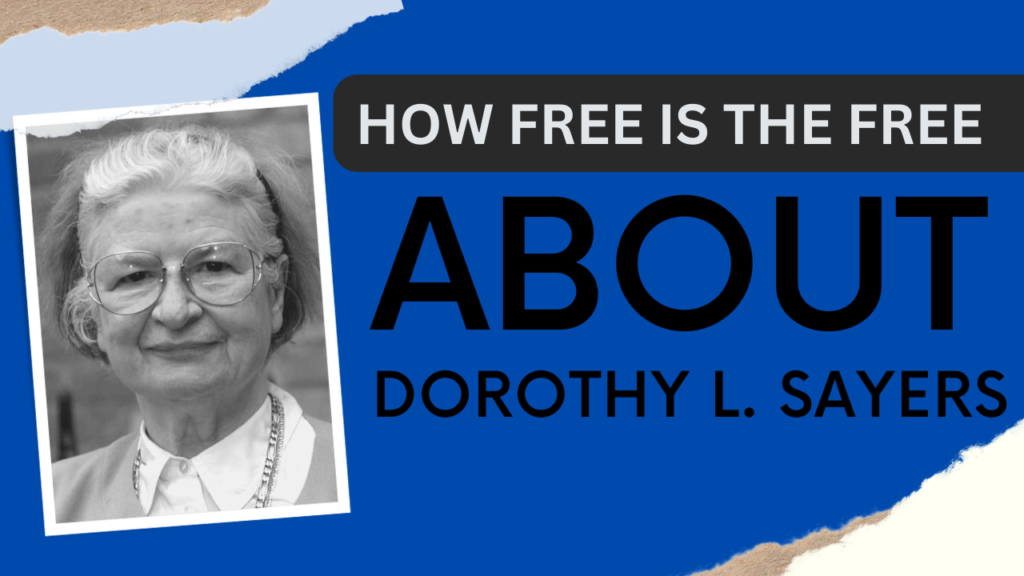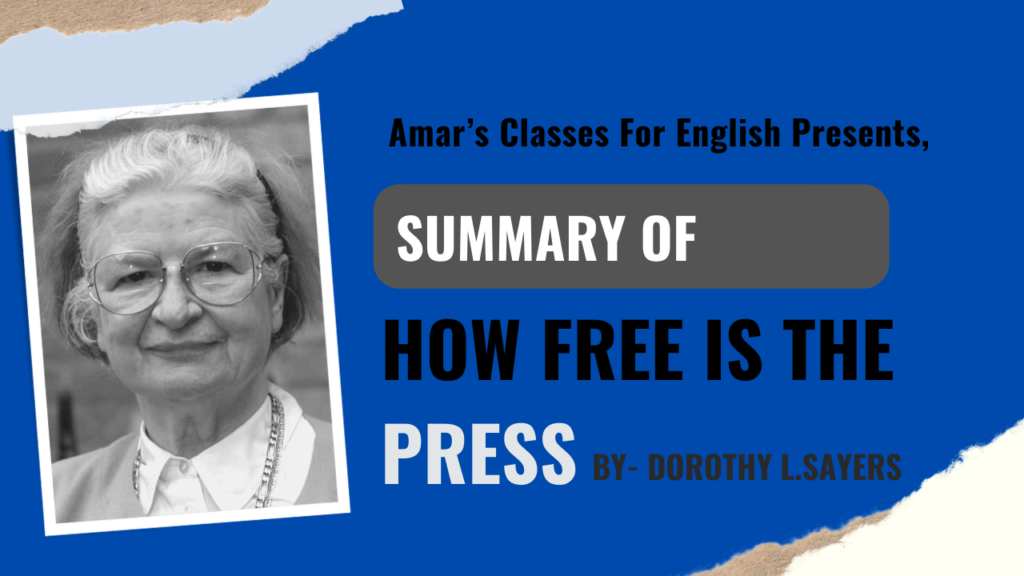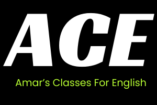
ABOUT AUTHOR
Dorothy L. Sayers was an English Crime Writer and poet. She was born in 13 June, 1893 in Oxford, United Kingdom and Died in 17 December, 1957 in Witham, United Kingdom. She became one of the first woman to graduate from Oxford University. His important works include, Clouds of Witness, Unnatural Death, Lord Peter Views the Body, etc.

SUMMARY
How free is the press is written by Dorothy L. Sayer. In this essay she expresses her view against the misuse of the freedom of the Press. It is believed that there can not be free people without the freedom of the press. But we should consider here what that freedom is. The freedom of press means freedom from direction of censorship by the government. In this respect British press is free. It can attack at Politcs. It an interfere in the foreign diplomacy. It is free to do anything. And on occasion it can be a weapon to threat the government .Above all works are the positive attitude of press. But sometime this freedom is misused by the press. Our democracy teaches us that the state is not the master but the servant of the people. Advertisement is the biggest source of income for the Press or newspapers. So the press designs its policy in the favor of advertisers. The policy of Newspapers is shaped by the interest of their owner. Above both factors causes the misuse of the Press. The Sayers writers clearly again the misreporting by the press.
WORD POWER
Take for granted : मान लेना
Restrictions : परिसीमन / बाधा
Wholesome : अच्छा और स्वस्थ
Censorship : किसी भी वस्तु के प्रकाशन को दबाने की निति
Subvert : पतन के कारण
Incite : काम के लिए हल चल
Discontent : असंतोष
Scandals : हास्य या गप सप
Foment : भड़काना
Harry : परेशान करना / सतना
Coerce : धमकाना / डराना
Disastrous : बहुत नुक्सान हुआ
Contrive : व्यवस्था
Shackled : लाया हुआ
Overlords : पूर्ण शासक
bankruptcy : दिवाल्यापण / बिलकुल पैसा नहीं होना
Revenue : आय
Perpetual : स्थिर
Subserve : प्रचार में एक साधन के रूप में सेवा करना
Precarious : खतरनाक
Proprietor : मालिक
Virulent : विषैला
Shrewd : चालाक
Cynical : उलझन में
Resolute : निर्धारित
Disseminates : फैलाव / विस्तार
Titillating : खुशी से
Slipshod : लापरवाह
Tendentious : जान बूझकर
Caesarism : पूर्ण तानाशाह
Allusion : अप्रतयक्ष सन्दर्भ
Fornication : अविवाहित पुरुष और स्त्रीके बीच स्वैछिक यौन सम्बन्ध
Ecclesiastical : धार्मिक / ईसाई चर्च के सम्बंधित
Disavow : जिम्मेदारी लेने से इंकार करना
Garbling : एक भ्रमित संस्करण
Canterbury Festival : नाटकों का एक त्यौहार जो CANTEBURY में होता है
Bland perversion : एकमुश्त और जानबूझकर विरूपण
Oxford : OXFORDSHIRE का एक मुख्या शहर जो ENGLAND में है
Gratuitous : ऐच्छिक
Detest : घृणा / नफरत
Libel : मानहानि
Honoris Causa : सम्मान करने का इरादा
Fleet street : केन्द्रय लंदन में एक राज्य जहाँ अधिक ब्रिटिश अख़बार का कार्यालय है
Syndicated : व्यस्त
Concerted : केंद्रित / संयुक्त
Symptomatic : सूचक
Smothered : पूरी तरह से ढका हुआ
badger : अस्पस्ट बनाना
Heckle : परेशान करना
Invoked : याचना करना / अपिल करना


